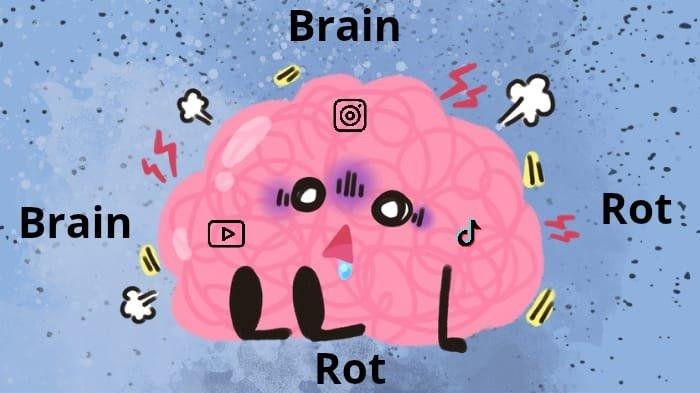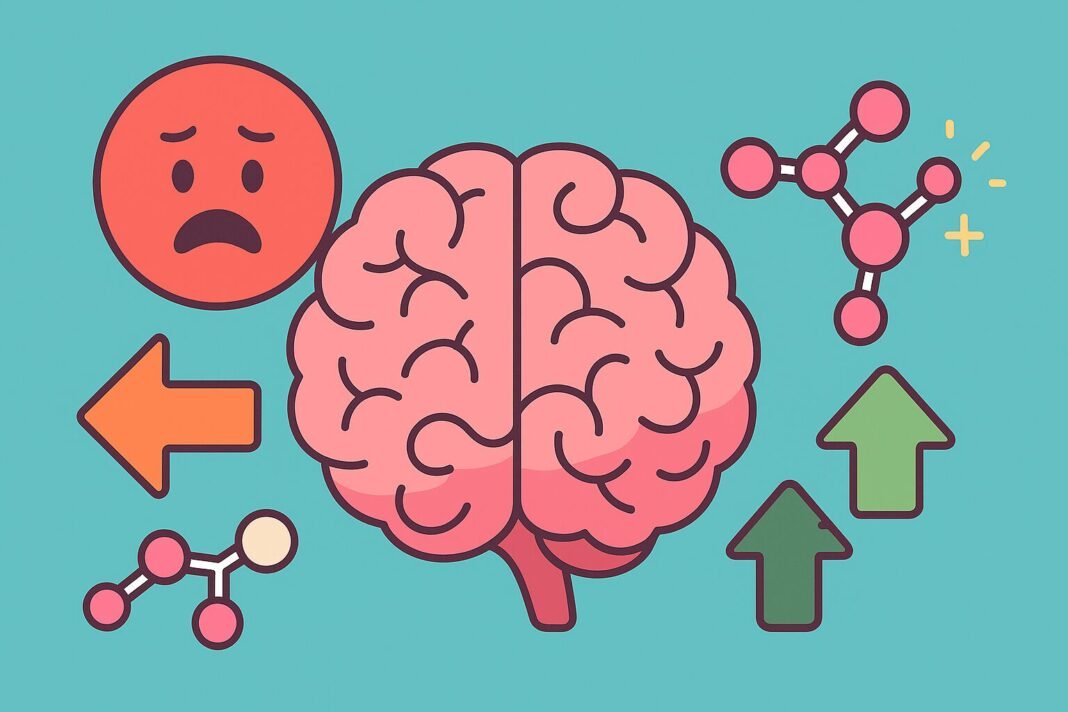
The dopamine detox trend has gone viral, claiming that cutting out pleasure will reset your brain’s reward system. But according to a new study from Northwestern University, this idea is not only incorrect, it overlooks dopamine’s critical role in helping us learn to avoid pain and navigate complex situations. This isn’t just about pleasure, it’s about protection.
Dopamine: More Than Just a Pleasure Hit
Most people associate dopamine with rewards, the hit we get from likes on Instagram or a bite of chocolate. But dopamine also plays a key role in motivation, learning, and adaptation. It’s the reason you might avoid a hot stove after being burned once, not just because it hurt, but because your brain learned something from that pain.
Gabriela Lopez, the lead author of the Northwestern study and a doctoral candidate at Feinberg School of Medicine, puts it this way:
“Dopamine detox is not all good or all bad. It rewards us for good things but also helps us tune into cues that signal trouble, learn from consequences, and continuously adapt our learning strategies in unstable environments.”
That means dopamine helps us both chase what we want and stay away from what we don’t.
How the Study Worked: Avoiding Bad Outcomes
In the experiment, researchers trained mice to respond to a five-second warning cue that predicted an unpleasant event. If the mice moved to the other side of a two-chamber box during the cue, they could avoid the outcome entirely. If they didn’t, well, the result wasn’t great.
As the mice learned the task, scientists tracked dopamine activity in two key areas of the nucleus accumbens, a region central to motivation and learning. These two areas, the ventromedial shell and the core, responded in opposite ways:
- In the ventromedial shell, dopamine levels increased during negative experiences.
- In the core, dopamine levels decreased during the same moments.
But here’s the fascinating part: these responses evolved over time. One signal was more prominent in the early learning phase, while the other became more active later as the mice mastered avoidance. The brain was not just reacting, it was adapting.
What Happens When You Can’t Avoid the Bad Thing?
To test flexibility, the scientists changed the rules: the outcome could no longer be avoided, no matter how the mice responded. Dopamine activity then shifted back to its earlier pattern, showing that the brain recalibrates when the environment changes.
Dr. Talia Lerner, associate professor at Northwestern and senior author of the study, explained:
“This shows that the dopamine signals are flexible, sensitive to task rules, and may help us adapt to changes in the environment.”
That’s a critical insight. It shows our brains constantly adjust how we assign importance to outcomes, rewards, and threats based on whether those outcomes are predictable or controllable.
Why Dopamine Matters for Mental Health
Excessive avoidance behavior is a hallmark symptom of multiple psychiatric conditions, including anxiety, depression, and obsessive-compulsive disorder (OCD). This study helps explain why that happens. If dopamine signaling becomes too skewed, the brain may begin to overestimate threats and prioritize avoidance, even when the danger is low or nonexistent.
In other words, the same system that helps us dodge real dangers can misfire, making us avoid social events, new challenges, or opportunities for growth.
This research could also inform treatments for:
- Chronic pain (where the brain learns to expect discomfort)
- Addiction withdrawal (where cues tied to pain or absence of reward are magnified)
- Trauma response (where the environment feels unsafe even when it’s not)
Understanding how dopamine guides avoidance may lead to more targeted therapies for these conditions.
Dopamine Detox Culture Gets It Wrong
The findings also challenge popular wellness trends like the so-called “dopamine detox”, where people avoid pleasurable activities like scrolling, eating junk food, or watching TV in an effort to “reset” their brain.
But there’s a big problem with that idea: it’s biologically inaccurate.
Dopamine isn’t a toxin to be flushed out. It’s a critical chemical your brain needs to function, for movement, memory, emotion, and yes, even pleasure. You literally can’t detox from dopamine without harming your body.
As Lopez says:
“We think of dopamine as a learning molecule that is important for normal behavior in everyday life. So, cutting it out completely can do more harm than good.”
This research underscores how dopamine is not just about indulgence, it’s deeply involved in helping us learn from pain, predict outcomes, and stay flexible in a changing world.
What This Means for Mental Health and Behavior

The researchers hope their findings will eventually translate into tools for:
- Therapists and psychologists designing more personalized CBT approaches
- Clinicians working with patients with PTSD or OCD
- Drug developers targeting specific dopamine circuits for treatment of addiction or anxiety
While this is early-stage research, it helps answer long-standing questions about why some people bounce back from bad experiences, while others fall into avoidance spirals that impact daily life.
Final Thoughts: What Dopamine Detox Advocates Miss
We need to stop thinking of dopamine as just a hedonistic switch. It’s not about chasing pleasure or punishing ourselves with abstinence. It’s about learning, from success and failure, pleasure and pain.
This new study reveals dopamine’s dual role as motivator and protector, helping us chase what’s good, and smartly avoid what’s not.So instead of trying to “detox” dopamine, we’d be better off asking: What is my brain trying to teach me right now?





